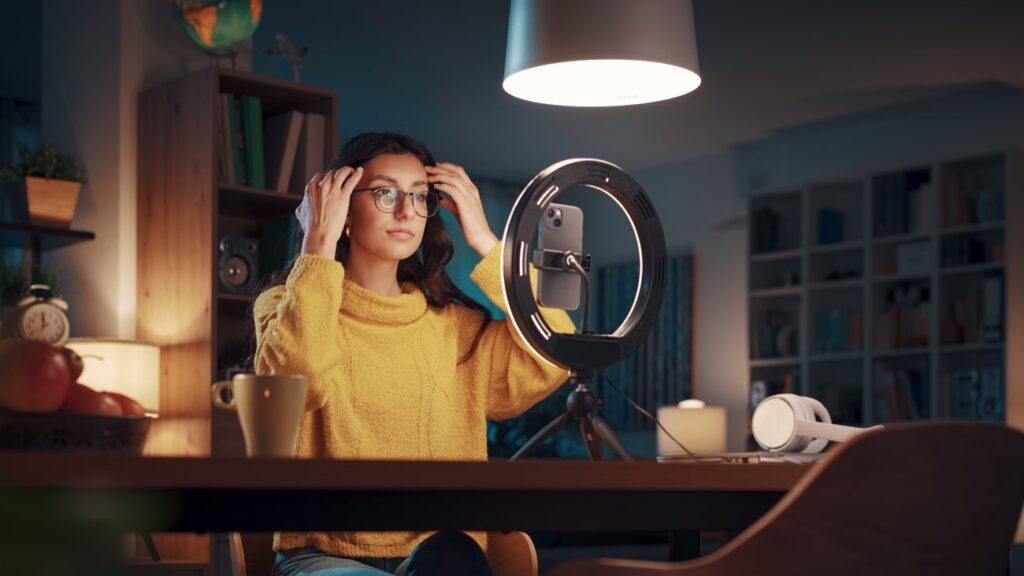
On February 1st, many users of the TikTok platform woke up; to find music videos they created or watched removed or muted; Even if its duration does not exceed only a few seconds, this is due to a dispute between the “platform” and “Universal Music Group,” known as “UMG” for short, in addition to the fact that UMG music is no longer available for use in new video clips.
A large number of stars affiliated with “UMG” are participating in the dispute with the “platform”, including: Taylor Swift, The Beatles, Billie Eilish, Drake, The Weeknd, and Bad Bunny, who believe that they do not receive profits from the successes of their songs through “Tech.” Tok, where content creators can create videos using music, which can be accessed through the “TikTok” library without restrictions.
Millions of content creators are using videos using these songs, according to Forbes, as Taylor Swift’s song “Cruel Summer” alone has been used in nearly 2.5 million videos.
What happened to the videos?
Video clips that content creators on TikTok previously created using the voices of permitted artists are still present on the platform, but they have been tagged with a note indicating that the music is no longer available, and the sound of the entire video has been muted, even if The UMG artist’s music was used for only seconds.
While subscribers can still watch these videos, in which dancing and lip-syncing are a large part of the content, these videos are useless; If it does not contain any sound. This change includes all countries of the world without exception.
“ UMG ” complaints :
The removal of the music and muting of the sound was not a surprise. Two days before the end of the contract concluded between the two companies, “UMG” published a statement on its website, announcing its intention to grant “Tik Tok” a grace period.
She said in the letter that the company was pressing the platform on three issues: appropriate compensation for its artists and songwriters, protecting human artists from the harmful effects of artificial intelligence, and online safety for TikTok users.
UMG also said that TikTok proposed paying its artists and songwriters at a rate that represents a small fraction of the rate that major social media platforms pay in the same situation.
For its part, TikTok responded that it was able to reach “artist first” agreements with every other company or publisher, indicating that Universal’s actions, which serve its own interests, are not in the interest of artists, songwriters, or fans. .
How to switch to other music:
If music is removed from one or more of a creator’s videos, and some TikTok creators have hundreds or thousands of affected videos, the creator may see a message on their video thumbnail, and TikTok must provide Tok” provides an option to select a new sound that can be used, from music that is not affiliated with “UMG”. This list includes the famous song “Lil Boo Thang” by Paul Russell, the song “Girls Just Want to Have Fun” by Cyndi Lauper in 1983, and the music of “Coolio”, “Green Day”, “Weezer”, and others.
Last July, TikTok reached a new music licensing agreement from Warner Music Group, so songs from its artists are still available.
Some creators have experimented with using a sped-up or edited version of the UMG songs they originally used, but it’s possible that audio detection software will block these clips as well.
Therefore, video makers may have to search for independent music, which is available on TikTok.
In fact, the ban could ultimately become a boon for independent music artists, as their music can go viral if content creators search for new music that isn’t banned and can use it.
Content makers are affected:
Social media platform expert, Shorouk Hilal, said in her interview with “Zahrat Al Khaleej” that Universal Music Group’s blocking of its music from the “Tik Tok” application, after the failure of negotiations regarding financial matters and the rights of lyric authors, could… It has a huge impact on the content creators active on the platform.
Hilal adds that the access of “TikTokers” or content makers on “Tik Tok” to this music may limit the music options available to content makers to use in their videos under the name “trending viral.”
She continues: This may lead to challenges in attracting viewers, retaining them, and increasing viewing rates, especially since music plays an important role in improving the attractiveness of the content and interacting with it.
To overcome the problem, the social media specialist explains that content makers may have to look for musical alternatives, or they must focus more and more on the original content they provide, which is not primarily based on music.
But she expects that this step will affect interaction within the platform, forcing content makers to adapt to these changes, find creative ways to deal with them, or withdraw to alternative platforms.
This is not the first time that TikTok has sparked controversy:
TikTok is a huge social platform and music app, with more than a billion users around the world, and more than 100 million in the United States, and it is no stranger to controversy, partly due to the fact that its parent company (Bytedance) is Chinese.
American lawmakers say that Chinese laws allow the Chinese government to request data from companies located there, meaning there is a risk to users’ privacy.
Although TikTok says that these fears are unfounded, the federal government, some states, and some countries have banned its use on government agencies and individuals’ devices.
